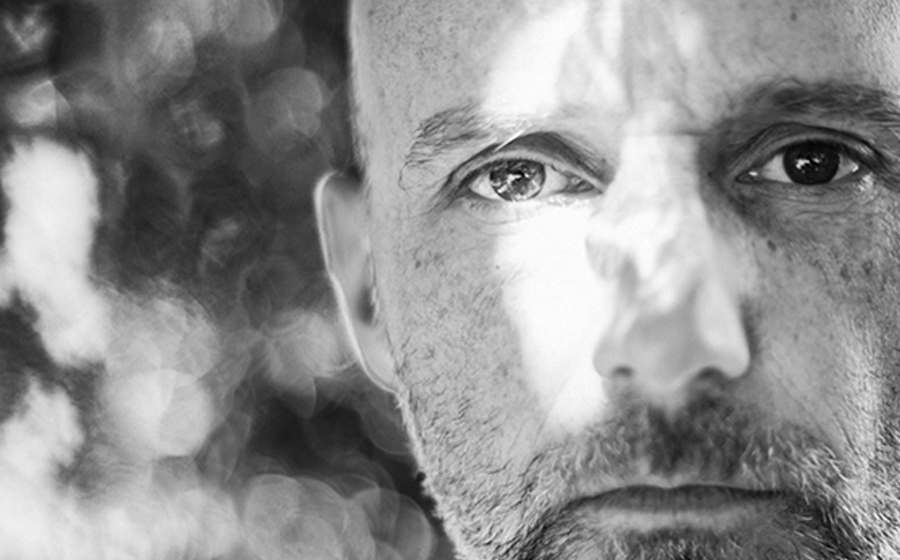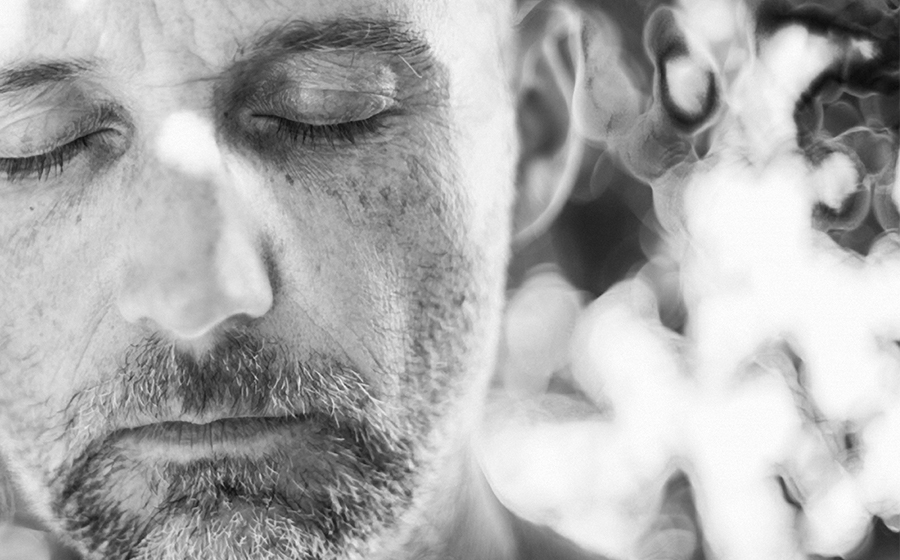
What is the earliest sound you can recall?
It’s one of my very first memories. I must have been three years old, and I had done something that made my mom yell at me, and I ran to my room. We grew up very poor, so my room was actually a closet with a tiny bed in it. So I ran to my closet. I had been given a kazoo, and I started crying into it. My mom came into my little room laughing hysterically, because the sound of somebody crying into a kazoo is really, really funny.
What do you think is the most powerful quality of sound?
I used to work with Oliver Sacks at the Institute for Music and Neurological Function that he started. One of the things in the work I did with Dr. Sacks that became strangely apparent to me was how powerful music is in ways that we oftentimes overlook. At this point, music doesn’t cost anything. You can access it anywhere on the planet, basically. We take it for granted that music can make us cry, and can make us laugh, and can make us dance, and can make us have sex, and can make us stand in a field with a hundred thousand people and scream at the top of our lungs. But all that music is and all that sound is are air molecules moving a little bit differently. It’s really quite striking when you think about it that air molecules hitting our eardrums slightly differently can either make us wince or cry or yell or dance. The fascinating thing with sound is that it has never been created. There’s no such thing as material sound. If you took a sound wave and passed it through some sort of solid, you could make the case that sound has created something, but all that sound has ever been is air molecules moving a little bit differently. And it’s such a wonderful analogue or metaphor for the workings of spirit; the idea that this invisible thing that has no corporeal substance can affect us so powerfully.
What happens to your body and mind when you use your voice?
The way sound affects our body really depends on the meaning that we give it. If we’re exposed to a beautiful Baroque concerto, our body is literally transformed by it. Our breathing changes, our metabolism changes, our neurogenesis changes; all these things change because we respond to something that we deem beautiful. Alternatively if you’re exposed to a truly grating, awful sound, it’s stressful. It stresses your systems and it impedes neurogenesis and compromises your immune system.


What music makes you happiest?
One piece of music that always triggers a very intense emotional reaction on my part is Beethoven’s Moonlight Sonata, because it’s such a beautiful, plaintive piece of music. Also, as far as I know, he wrote it when he was going deaf, so he didn’t really know what it sounded like. There’s such a sadness attached to that, and not just for Beethoven; it’s the simple sadness of the human condition. No matter who we are, no matter how wealthy or powerful we are, at some point we die. At some point we are unable to register the material world. There are three different ways I think of looking at that. One, we’ll call it the Western Way, is to fully immerse yourself in the physical world. Two, the Eastern Way, is to reject the material world. And three, the gentle Middle Way, is to recognize the nature of the material world in a rational way but also have space for the sadness around it, to accept that we are mortal, to accept that we live short lives, but not to shut down our emotional reaction to it, to allow ourselves the space to mourn death and to mourn loss even though they are inevitable.
Another piece of music that always makes me happy is the beginning of Rhapsody in Blue by George Gershwin. It’s one of the most joyful, complicated, nuanced pieces. I’m hesitant to call it classical music, although I guess technically it is. On its own it’s a remarkable composition, but what it represented for George Gershwin” it’s basically a love letter to all these musical idioms he loved. There’s Debussy, there are some other nineteenth-century French composers, there’s the sound of the Jewish settlements on the Lower East Side, there’s the sound of big, grand orchestras. There’s the almost Yiddish theatrical folk element and the birth of jazz in there. The fact that he was able to beautifully shoehorn all these idioms into one piece of music is really special. I think it’s one of the most special pieces of music ever written.
Putting Beethoven and Gershwin to the side for a moment, how important is silence to you?
I think silence is an unfortunately used word and concept because the only place in which silence can exist is in a vacuum or in the experience of someone who is incapable of hearing. I almost feel like instead of silence it’s better to talk about things being very quiet. For example, if I’m on a meditation retreat and they call it a silent retreat, in truth it’s a non-talking retreat in a very quiet place. As far as I know I have never experienced silence, because all the mechanisms in my ears have been working from the time they were formed in the womb, and I hope they keep working till the day I die.
I like the idea of retreats. But to be honest””and maybe I don’t have enough experience with them””I almost prefer dealing with the world and having a meditation practice that helps me with that. I think sometimes being exposed to the stimuli in the world can be a better teacher for me than being on a silent retreat.
Speaking of meditation, could you talk about the meditation album you recently released?
Basically I made a lot of very long ambient music for myself. As much as I like other people’s ambient music, I found it was either too short or too demanding or too cliché. Like it was either four minutes long or had noisy drums in it or it was a sample of a hawk with shakuhachi flute underneath it. I don’t dislike any of those things but I wanted something long and quiet and utterly undemanding. So I started writing it for myself and realized I had four hours of this very quiet ambient music and thought I’d give it away in case anybody else wanted to use it. First and foremost I have to make music that I love, and then you put it out in the world and hope it might find itself in people’s lives and that they might get something from it. And especially now that people don’t pay for music, in a way it’s kind of liberating because you can put music out into the world and see what happens.
I taught a meditation class a couple of weeks ago. One of the things that breaks my heart is how self-critical people are when it comes to self-care and meditation. So many people think they should be meditating more or meditating better, and honestly the goal of any self-care, meditation practice is to serve the practitioner, not for the practitioner to serve the practice. In releasing this meditation music or any music I make, it’s hopefully letting people, giving people the license to let themselves feel better and to calm down. As organisms we’re so hyper-stressed. You look at your average human who is drinking four cups of coffee a day, checking their phone from the time they wake up until the time they go to sleep, probably in relationships that are not very satisfying, doing work that they don’t like very much, sitting in traffic, being exposed to all this stress. And then you look at most meditation practices, which were invented by people three thousand years ago, before the advent of electricity, and so if someone who has this hyper-stressed, hyper-caffeinated life at the end of the day sits down on their yoga mat or meditation cushion, it’s not surprising that they can’t quiet their mind because they have been basically stimulating it for the last eighteen hours. One of the goals of the meditation music is to help people calm down in a fairly expedient way.
You mentioned in a blog entry that you try to make music that has a quality of vulnerability. Can you speak about vulnerability in your work?
I think that we live in a culture that really doesn’t encourage vulnerability. People are taught to identify with their most aggressive, defensive, cynical, ironic, bitter impulses. But to me, what we are””you can almost say the nature of organic biological life””is vulnerable in the most literal way, meaning it’s short-lived and it’s delicate. When someone is being bellicose or violent or aggressive or ironic or bitter or what have you, they are basically putting a cover on the core of vulnerability that all biological life shares. And music is one of the most effective ways of getting past that carapace, or suit of armor. In my life there has been something really special and powerful when you can connect with that feeling of vulnerability. In the music that I make I aspire to that. Of course I make music that isn’t vulnerable. I make music that is big and goofy and celebratory sometimes, and I sometimes make angry music. Ultimately it’s that connection with the vulnerable, however, that manifests itself and should be a huge part of not just our spiritual lives but our daily practice in order to keep our species alive, because the opposite of that is just wholesale indulgence and aggression, which, as we’ve seen for the last few thousand years, hasn’t worked out too well.
How can we use music in times of political unrest?
There are so many ways in which music can both heal people and help people connect with each other and help people feel heard. It’s a way of communicating. I’ve been trying to do that in my own little way for a while. But there’s such a long history of very powerful protest music. I feel like in the very least every musician should try to write effective protest music. It doesn’t mean that’s all you have to do. I think of Neil Young who wrote some very beautiful personal music but he also wrote some great protest music. John Lennon, same thing. I think that now””not just in terms of facing an incompetent, right-wing Republican administration, but the issues that our species is facing in terms of climate change and environmental degradation and antibiotic resistance””we’re at a turning point for our species, where if we don’t deal with the things with which we’re confronted, there’s a very good chance that we may not make it. And human beings for all our shortcomings, I feel we do enough interesting things to warrant our survival.
What excites you about the future of music?
The two biggest changes in the world of music are 1) how easy it is to access any piece of music that’s ever been made, and 2) how easy it is for anyone to make music. There are so many apps and software programs that enable even someone with no musical ability to sit down and make music. I think both those things are really encouraging. The one thing that really hasn’t changed in thousands and thousands of years is the ability of music to reach people emotionally. Using the Moonlight Sonata as an example: I’m assuming that when it was first performed people had a very similar reaction to someone listening to it today on Spotify. That ultimately is the criteria by which music can be judged. It’s not how it’s made or how it’s distributed or in what context it was created, but how it affects the listener when they listen to it. To me that’s ultimately the sole utility for music. I get really vexed when people criticize or celebrate music based on how it was made. Ultimately it’s up to the listener and their subjective relationship with music.
What is the last sound you want to hear as you lie dying?
I’m trying to think” I guess someone telling me that every human being on the planet has finally decided to stop using animals for human purposes. Hopefully that will happen before I die.
Moby’s Desert Island Discs
You are about to be cast away on a desert island. Which ten recordings would you take with you? If ten is too many”
Oh no. I can think of ten:
Heroes by David Bowie
Rhapsody in Blue by George Gershwin
The first Bad Brains album
Moonlight Sonata by Beethoven
I Feel Love by Donna Summer
Imagine by John Lennon
Cat Stevens’s Greatest Hits
Led Zeppelin’s Greatest Hits
Goat’s Head Soup by the Rolling Stones
and for pure aggression” The Great Southern Trendkill by Pantera
(And then probably one of my records, but I don’t know which one.)
About the Contributor
Moby was named the world’s bestselling alternative musician in 2001 and is the winner of four MTV Music awards. His most recent release is a collection of ambient music created for his personal meditation practice, which he has made available to the public for free. Known for his political and social activism, he has been a vegan for more than fifteen years.


